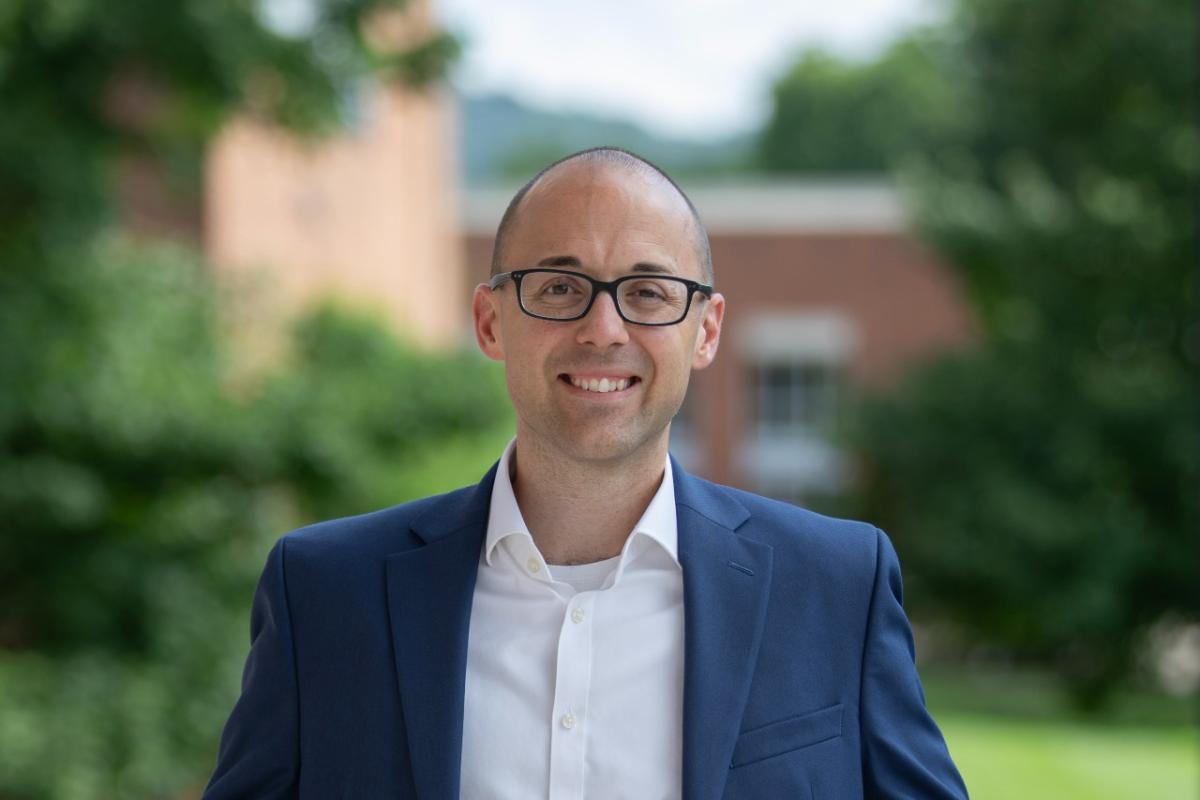Resolving crisis by resolving pain
From the Secret Service and the FBI to Google and YouTube, Adam Graham is bringing compassion to those suffering from psychosis.
Janel Shoun-Smith | 615.966.7078 |

If there is one thing people say about Adam Graham (BS ’06, MS ’12), it’s that he is good in a crisis. In fact, the clinical mental health consultant has made an entire career out of dealing with crises and helping others in his community do the same.
What started with one psychology elective in his freshman year at Lipscomb has unfortunately become a specialty that has been increasingly needed in the past decade. Local, state and federal agencies have called on time and again to help prevent and treat individuals’ acute mental health crises that could potentially turn into violence against themselves or others.
Graham’s work is far more in demand than most may think at first glance. In addition to law enforcement agencies, most major companies have threat management teams that provide an intentional response to resolve threats of violence from employees, strangers or others before anything happens, he said.
Over the past 50+ years, the nation’s response to crisis mental health care has moved from institutionalization to working closely with law enforcement, social workers and community servants to prevent or diffuse situations where individuals become homicidal, suicidal or experience a severe mental illness, Graham said.
Graham’s approach to resolving suicidal or violent crises frames the task as one of meaning and purpose.
“Crises force us to face the question, ‘What makes life worth living, even when it is unbelievably painful?’,” said Graham. “The mental health care industry currently emphasizes finding answers within: self-definition, self-expression and self-actualization, etc. and when the self is overcome by pain, this emphasis is not enough. Decades of trying to treat suicidality and violence with only medication, coping skills and locked rooms has not worked.
“The only way I know to honestly answer the question of what makes life worth living, is a life that is not about us,” he continued. “I will go through pain for my family. I will endure hardship for the church that I love. I will work long hours because there is meaning in the work. I learned all of this from Jesus. Life is not about me or what I want at this moment, it’s so much bigger than that.”
How does this translate to crisis work? Graham asks both individuals and now groups to ask the big questions of meaning and purpose, of what it means to live well.

Melanie Morris
“Adam has a servant heart for the underserved, those suffering from psychosis, poverty, homelessness, addiction and those who may be hopeless, alone, forgotten and despised,” said Melanie Morris (LA ’89, BS ’93), associate professor and clinical director in Lipscomb’s clinical mental health counseling program.
“He is also an expert in suicide and homicide prevention and seeks to make mental health and police services more compatible, compassionate and effective in their efforts to keep all people safe and healthy. He has made permanent improvements in Nashville toward these efforts.”
Since graduation, Graham’s career has progressed from on-site, one-on-one interaction with individual patients to now working for a national company, TBD Solutions, which partners with organizations and governments to assist launching and improving crisis care systems for individuals. Along the way he has consulted for the FBI, Secret Service, local law enforcement, schools and the juvenile court system in mental health crisis management.
He discovered his skills for working through a crisis in his work as a case manager early in his career. He would provide care for patients with conditions such as schizophrenia and bipolar disorder at their home. “I found that when they entered into a severe crisis while I was there, that being able to help in that very moment was really meaningful and engaging for me,” he said.
He enrolled in Lipscomb’s counseling program and took a job at Nashville’s Mental Health Cooperative with that in mind. Over the course of 13 years at the cooperative, Graham became a crisis counselor who was dispatched to on-site locations (such as hospitals, homes, workplaces or even on the side of the road), moved into management of the organization’s crisis units; and provided clinical and operational leadership to its Mobile Crisis Response Team.
Local and national law enforcement are seeing so many crisis situations involving mental health crises (such as threatened mass shootings or dangerous public behavior driven by severe mental illness) that Graham, through the cooperative, has partnered with the FBI (even on classified cases), conducting case reviews to determine the best way to diffuse a potential threat or provide treatment, or to train the FBI’s own officials to do the same.
In 2021, the cooperative established, and Graham helped develop, the Partners in Care program, where mental health workers ride along with Nashville law enforcement officials to be present on-site during the first response to a crisis.
“If the primary driver of a person contemplating violence is a mental health crisis, then the care provider advises on the best way to get the individual connected to mental health care so that they no longer view violence as the best way to resolve their grievance,” explains Graham.
Graham was on-call with the FBI’s negotiation team during the 2016 Presidential Debate in Nashville to handle any threats of violence during the debate (there was one that did warrant health treatment and was deemed not legitimate). He also helped design and launch the cooperative’s Crisis Treatment Center, a new approach to providing 24-hour mental health services; and was part of the leadership response to the Covid-19 pandemic and its consequences.
Due to the cooperative’s partnership with the Metro Nashville Police Department and Metro Nashville Public Schools, there has been a decrease in the arrest numbers of children under 12, said Graham. Many such situations involve students in a mental health crisis who become violent, and officials were defaulting to arrest because they simply didn’t know what else to do, he explained.
After leaving the cooperative, Graham served as a consultant with various organizations including the for-profit companies Google and YouTube to implement threat response and mitigation plans informed by a mental health perspective.
In March, Lipscomb’s student chapter of Chi Sigma Iota, a professional honor society, awarded Graham the CSI Iota Delta Community Service Award for his dedication to being of service in Davidson County and surrounding areas, specifically in underserved and marginalized communities.
“Of those who experience a mental health crisis, a very, very small percentage ever contemplate violence,” said Graham. “When these folks find themselves in that place, the best thing to do is to resolve their pain and help them find a life worth living.”